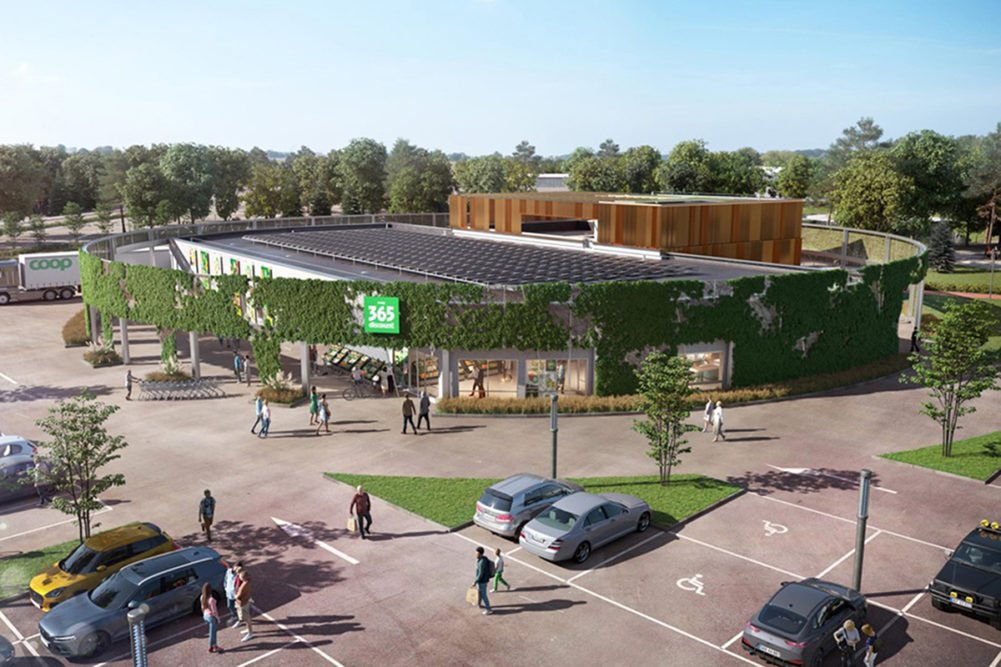Danish engineering firm Danfoss’s new grocery “smart store” is expected to be about 50% more energy-efficient than a typical supermarket.
The store, in Nordbord, Denmark, will serve as Danfoss’ test center for energy efficiency technology, according to the company.
The store runs off sustainable energy sources and reuses the excess heat created by cooling cases, reducing supermarket heating costs by up to 90%, thanks to a cutting-edge, first-generation CO2 refrigeration system.
“As the world’s population continues on its course to reach 10 billion people by 2050, investments in sustainable food retail and storage are urgently needed to ensure we are able to feed the growing number of people on the planet,” according to Danfoss. “The pressure is growing, both on energy demand and costs, and on the need to cut down on food loss. If food waste was a country, it would be the third largest emitter behind the US and China, contributing to up to 10% of the world’s greenhouse gases.”
Retailers who invest in a smart store like Danfoss’s can recoup their investments in three or four years, given the huge energy savings, according to the company.
Solar power is the supermarket’s primary energy source, with 100 kW solar panels on the building’s roof providing green energy to support the supermarket operations.
Heat capture and reuse is also key to the energy efficiency of the supermarket, with up to 90% reduction in supermarket heating costs expected.
The store is fitted with state-of-the-art heat recovery units, designed to recover the waste heat from all the refrigeration systems. The recovered heat is reused to heat the store and produce hot water, with any additional heat shared with residents of the surrounding town through a district energy network.
Doors on refrigerator and freezer cases in the store, meanwhile, will save about a third on energy use, while LED lighting uses up to 85% less electricity than incandescent bulbs. Automation adds yet another layer of energy saving.
“While supermarkets and retail food stores are an integral part of communities around the world, they are also big energy consumers,” said Jürgen Fischer, president of Danfoss Climate Solutions. “The average profit margin for a large food retailer is just 1.7%, which puts every operating cost under scrutiny. Energy is an area where significant savings can be achieved with relatively low investment and good payback times.”
Danfoss, Fischer added, has reimagined what food retail stores can look like in the 21st century. For the first time, all of Danfoss’ most cutting-edge technology and energy efficient food retail solutions are being brought together into one retail site.
“The new smart store supermarket is only the beginning. It will also serve as an Application Development Center, a ‘live’ testing site for new technologies, which we hope will inspire food retailers around the world to move towards zero emissions supermarkets — while making economic sense.”
This article is an excerpt from the April 2024 issue of Supermarket Perimeter. You can read the entire Energy feature and more in the digital edition here.

